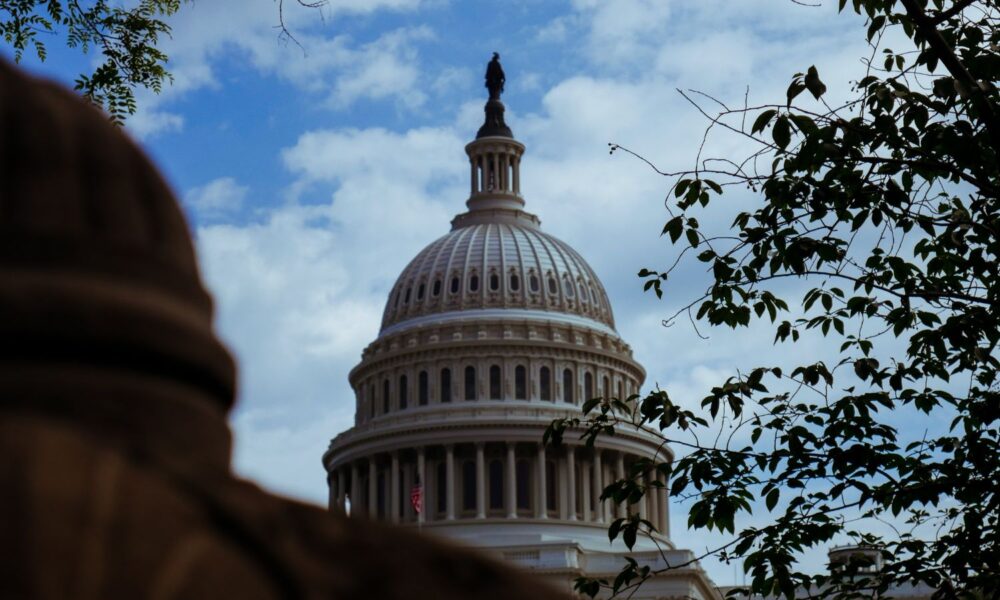Today, we received some welcome and exciting news from Capitol Hill: the Scientific Integrity Act is being re-introduced in the House by Representatives Paul Tonko, Zoe Lofgren, Haley Stevens, Suzanne Bonamici, Don Beyer, and Brian Fitzpatrick. This means that our congressional representatives will debate and discuss scientific integrity protections in committee and potentially even vote on the issue in coming months.
Given the major role federal science plays in upholding public health and environmental safeguards—such as protecting the public from air pollution, toxic chemicals, climate change impacts, unsafe working conditions, foodborne illnesses, and infectious diseases—it is vitally important to prevent political or other special interests from sidelining or otherwise distorting federal science. And the best way to prevent such attacks on science is for Congress to enact strong scientific integrity protections.
Congress can make scientific integrity policies enforceable
Political appointees, senior officials, and other high-level personnel have a long history of violating scientific integrity at federal agencies, which makes the passage of a congressional bill to protect scientific integrity all the more pressing.
We at the Union of Concerned Scientists have so far documented 324 examples of attacks on science under the Bush, Obama, Trump, and Biden administrations, and have determined that violations of scientific integrity have occurred under every administration since at least the 1950s. These are egregious examples of senior officials placing politics above federal science by burying scientific reports, stopping the collection of data, or dismantling scientific advisory committees, among many other tactics. Worse yet, our research suggests that when federal science is sidelined, underserved communities—Black, Indigenous, people of color (BIPOC), low-income, and rural communities—frequently face the brunt of the harms in the form of weak, ineffective, or undermined health, safety, and environmental protections.
To prevent attacks on science, the Biden administration has laudably taken a series of steps to try and strengthen scientific integrity policies at federal agencies, as governed by President Biden’s scientific integrity memorandum from January 2021. These efforts by the executive branch are welcome and complement the re-introduction of the Scientific Integrity Act. But, while the Biden administration’s efforts can put in place some of the executive branch’s best ideas to cultivate a culture of scientific integrity, only Congress can add “teeth” to these efforts to help enforce the policies and ensure that all agencies comply even in future federal administrations.
The re-introduced Scientific Integrity Act would require federal agencies that fund, conduct, or oversee scientific research to establish and maintain clear scientific integrity policies and mandate that they have safeguards in place to ensure the integrity of the scientific process. These scientific integrity policies would have the force of law behind them and would establish and clarify a series of protocols to ensure that these policies are properly implemented, periodically updated, and publicly available.
The bill would clarify that federal science should undergird the policymaking processes, free from inappropriate politics, ideology, or financial conflicts of interest. It would prohibit suppressing, altering, or interfering with the release or communication of scientific findings, or acts of retaliation against scientists releasing politically inconvenient results. Additionally, the bill requires each federal agency to appoint a scientific integrity officer, and to establish a process for dispute resolution consistent with the scientific integrity policy, and a training program for current and new employees. The bill previously received bipartisan support when it passed in the House Space, Science, and Technology Committee in 2019 and when it passed the House in 2020 under the HEROES Act.
Stop attacks on science and urge Congress to pass this bill
It is hard to overstate the importance of codifying scientific integrity protections into law. While we have reported on the encouraging steps that the Biden administration is currently undertaking to strengthen scientific integrity policies at agencies—including the historic release by the White House’s Office of Science and Technology Policy’s (OSTP) of a framework, a new policy, and an opportunity for all agencies to strengthen their policies—the truth is that a future presidential administration could undermine, fail to enforce, or even roll back all these policies. We cannot rely on the commitments of a single presidential administration to create enduring and robust scientific integrity protections that will outlast its term and be strongly enforced in the future.
The only way to achieve such a lasting impact and ensure that federal scientists and their work are protected from political interference is for Congress to codify these protections into law. We at the Union of Concerned Scientists will be watching this process and pressing our congressional leaders to pass this bill and put scientific integrity protections into law.
The Scientific Integrity Act is important, commonsense legislation that transcends partisan politics. And, with the 2024 election coming up in just a little more than a year, your representative in Congress may be especially receptive to your feedback. So, if you value scientific integrity, consider contacting your member of Congress to let them know this issue is important to you.

